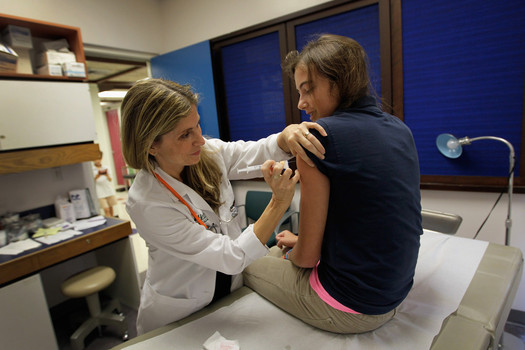Human Papillomavirus (HPV) is a serious problem which is a leading cause of sexually transmitted diseases. More than 70 percent of sexually active people are afflicted with the virus at least once during their lifetimes. Taylor & Francis reports via Alpha Galileo, there is a different perceived of susceptibility to the disease in parents who had their daughters vaccinated for HPV.
Women who have persistent infection with some strains of HPV seem to have a greater risk for cervical cancer. This is the second most common type of cancer in women. These women also appear to be at greater risk for head-and-neck and other types of cancer and anogenital warts.
The HPV vaccines presently available have been shown to be safe and virtually 100 percent efficacious. Nevertheless, routine vaccination which is targeted primarily at young girls has generated widespread public controversy. Researchers have identified the key determinants in parents’
decision-making about getting HPV vaccination for their daughters.
The results of this study have been published in the journal Human Vaccines & Immunotherapeutics. It was observed that parents who had their daughters vaccinated differed from those parents who did not do so in perceived susceptibility to the illness, benefits and barriers of the HPV vaccine, and cues to action.
Parents who were more trusting of of public health system and who wanted to protect their daughters’ health were more likely to take their physician’s recommendation and get their daughters vaccinated for HPV. There was a greater likelihood of parents declining to get their daughters vaccinated when there were more concerns about side effects and safety of the vaccine.
Vaccination against the human papillomavirus has been shown to be an effective primary prevention measure for HPV associated diseases. Getting the vaccine for children and young adolescents is contingent upon parental consent. It is therefore hoped by the researchers that this study can be generalized for guiding initiatives to increase HPV vaccine uptake.















